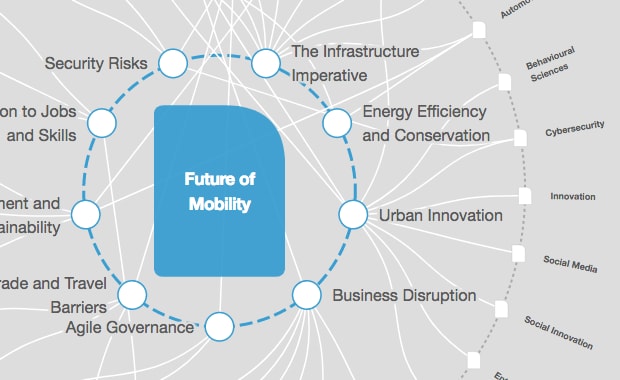Closing the global infrastructure investment gap

Private-sector resources are needed to close this global infrastructure investment gap
The impact.
The World Economic Forum is fostering new approaches to maximizing private-sector investment in infrastructure by connecting multilateral development banks (MDBs) and governments with institutional investors such as banks, pension funds, insurance companies, asset managers and sovereign funds.
At the Annual Meeting 2017 in Davos, the Forum convened heads of MDBs and senior executives from the private sector to engage in discussions on how to mobilize private-sector capital to finance infrastructure projects around the world, and particularly in developing countries. The recommendations from these discussions, combined with the Forum’s landmark report Risk Mitigation Instruments in Infrastructure, resulted in the G20 launching its Principles of MDBs’ strategy for crowding-in Private Sector Finance for growth and sustainable development in 2017. These guidelines (which reference the Forum’s Risk Mitigation report) provide MDBs with a common framework for increasing infrastructure investment from private-sector to promote inclusive growth and sustainable development.
In addition to helping to define infrastructure as an asset class for investors, the Forum has raised awareness of the need to redefine the way in which infrastructure is financed, prompting MDBs and the private sector to collaborate more closely together.
The challenge with infrastructure investments?
Almost 14% of global GDP is invested in infrastructure. Yet, with a growing world population, increased urbanization and economic development, and crumbling infrastructure across the globe, the current level of investment is simply not enough. At this rate, the gap between projected infrastructure spending and the amount needed to meet the world’s infrastructure needs is estimated to balloon to about $15 trillion by 2040.
Since public funds are insufficient to meet these demands, private-sector resources are needed to close this global infrastructure investment gap and achieve the UN Sustainable Development Goals. But even though most development banks understand the basic principles of engaging the private sector, they face significant challenges in implementation due to capacity constraints, inadequate tools and support mechanisms, and the inability to create the right environments to attract private investments.
So how can we best leverage private-sector capital to fund infrastructure projects around the world?
Our approach.
As the International Organization for Public-Private Cooperation, the World Economic Forum is uniquely positioned to effect systemic change in infrastructure financing.
Since 2017, at each Annual Meeting in Davos and during several workshops in between, the Forum has brought together leaders from the financial services industry—including the world’s largest financial institutions, representing trillions of dollars in assets—as well as partners from the Forum’s Infrastructure and Urban Development Community, heads of MDBs and senior government officials to discuss tangible ways for increasing investment in infrastructure development.
Thanks to such Forum-facilitated discussions, institutional investors are seeing that their objective of increasing infrastructure investments aligns with the MDBs’ priority of mobilizing private-sector funds for infrastructure, creating opportunities for them to collaborate more closely than ever before.
By leveraging the Forum’s global platform for knowledge sharing and collaboration, MDBs, governments and the private sector are finding new ways to work together to mobilize private-sector capital for infrastructure financing—a key element in closing the world’s infrastructure gap.
To translate all this into action, we launched a working group in June 2019 that is developing a pilot transaction between MDBs and the private sector that will serve as a scalable, replicable reference transaction going forward.
Infrastructure has been a priority for the Forum for over a decade, and our vast body of knowledge and expertise demonstrates that the Forum continues to be at the leading edge of thought leadership and impact in the infrastructure space. We’re excited to be working with key stakeholders around the world to develop infrastructure investment solutions for the 21st century and beyond and are always looking for interested partners to join us in our efforts.
How can you get involved?
No other organization brings together leaders from the public and private sector on such a large scale to tackle global challenges. By engaging with the Forum, you’re engaging with a global community of thought leaders and changemakers who are actively working to make a positive difference in the world.
Stay up to date:
Mobility

Explore and monitor how Mobility is affecting economies, industries and global issues
Forum Stories newsletter
Bringing you weekly curated insights and analysis on the global issues that matter.





